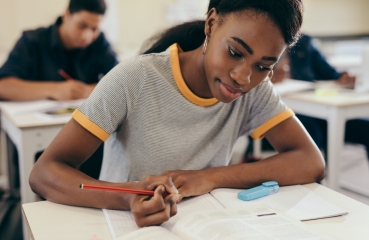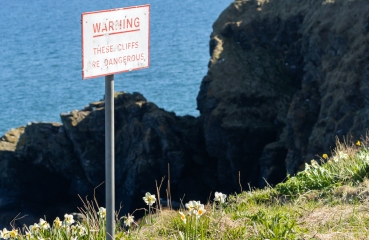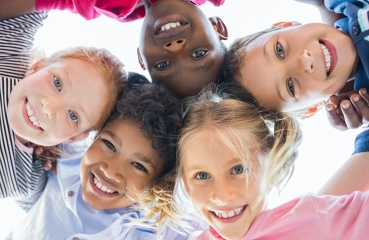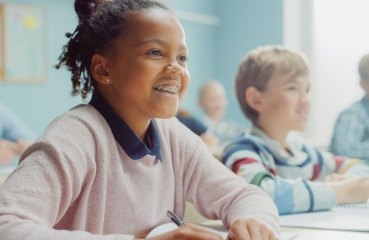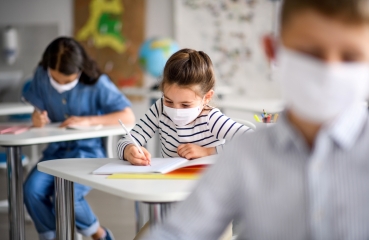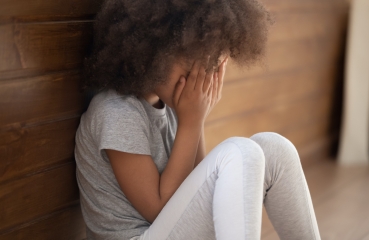What we're reading this week: September 30, 2021
The Education GadflyA study by Jay Greene and James Paul finds that courting Democrats has been a lost cause—and a costly one—for school choice legislation.
Performative teaching is undermining trust in schools
Robert PondiscioIncreasingly, teachers are not shy about expressing their views on charged racial and political views. This may be a symptom of a profound shift in our relationship with institutions and the role they play in our lives. Where institutions once functioned as molds of our character and behavior, they’re now platforms on which we stand to be seen. And this could be cratering our trust in them.
Rigorous courses are a good thing—and good for equity
Brandon L. Wright“As a broader mechanism for equity, [Advanced Placement] has fallen short, unable to overcome the powerful structural forces that disadvantage far too many students,” writes Anne Kim in a recent long-form article in Washington Monthly titled “AP’s Equity Face-Plant.” “If the ultimate goal
There’s a fiscal cliff coming, and some districts appear hell-bent on making it worse
Marguerite RozaWe’ve been polling district finance leaders about their biggest concern in this moment, and the most common answer is financial problems down the road.
A flawed study of Indiana’s voucher program
Jeremy SmithA recent study looks at the impact of
What we're reading this week: September 23, 2021
The Education GadflyThere is a growing gap in college enrollment and graduation between men and women. Is it driven by the effects of more children growing up in single-parent homes? —New York Times “Student quarantines will cause the next major school disruptions.
The rise in Black unemployment is about more than race
Walter Myers IIIRecently, the Bureau of Labor Statistics released its disappointing monthly jobs report, which showed that the economy had added only 250,000 jobs in August, far fewer than the 750,000 expected.
Five crucial considerations to protect social and emotional learning
The Master Teacher, Inc.The growth in popularity of social and emotional learning (SEL) is bringing with it increased attention to and scrutiny of what exactly SEL means and questions about whether it is something more than just another educational fad or ideological movement.
School choice is a better instrument for racial justice than critical race theory
Daniel BuckThe outlook has gotten bleak for the anti-racist and CRT movements in U.S. classrooms, as Americans saw these ideas in action and largely recoiled from them. But there's another K–12 strategy for achieving racial justice: school choice.
Blinding ourselves to America’s achievement woes
Chester E. Finn, Jr.Much as happened after A Nation at Risk, the U.S. finds itself facing a bleak education fate, even as many deny the problem. Back then, however, the denials came mostly from the education establishment, while governors, business leaders, and even U.S.
Ohio data show the pandemic's heavy toll on student achievement and the importance of in-person learning
Vladimir Kogan, Stéphane LavertuThe Covid-19 pandemic caused unprecedented disruptions to teaching and learning across America, including school closures, sudden changes to instructional delivery, economic hardship, and social isolation.
What U.S. teens think about their futures—and the country’s
Jeremy SmithThe Washington Post and Ipsos recently surveyed fourteen to eighteen year olds on their attitudes toward the state of the U.S.
What we're reading this week: September 16, 2021
The Education GadflyBoston’s next mayor will have to rise to the challenge of revitalizing the once-exemplary school district after years of declining performance.
What 9/11 means for America’s schools twenty years later
Dale ChuThis week, we remember and reflect upon an unforgettably tragic day. This comes amid throes of national conflicts over information, misinformation, even the nature of facts and truth themselves. Schools can’t fix all this, but they must reclaim their vital role in ensuring that Americans understand their history and the interconnectedness of today’s world.
Seven questions about September 11
Lamar AlexanderThis advice from my friend Lamar Alexander for teaching about 9/11 was published twice by Fordham, first in 2003 and again (lightly revised) in 2011.
From the personal to the political, for the love of freedom
William DamonThis superb short essay by Stanford professor Bill Damon is a hard-hitting piece from a gentle, thoughtful, and learned psychologist, and (as with Senator Alexander's contribution) was first published by Fordham in 2003
Alternative certification policies and teacher recruitment outcomes
Amber M. Northern, Ph.D.A recent study published in Educational Policy is a timely look at the ways in which states’ alternative certification (or AC) policies for teachers have impacted the composition of the corps of novice educators.
The wide-ranging benefits of natural mentorships
William RostA recent Annenberg working paper explores the effects of “natural” mentorships, which researchers define as voluntary and informal relationships between school personnel and students. It finds many benefits, especially for teens from low-income households.
What we're reading this week: September 9, 2021
The Education Gadfly“What schools teach about 9/11 and the war on terror.” —Houston Chronicle Men are trailing women’s college enrollment in record numbers.
Addressing constructive criticisms of Fordham’s report on state civics and U.S. history standards
David GriffithOur recent study of states’ U.S. history and civics standards attracted some constructive criticism from both the left and the right. It was, after all, explicitly bipartisan. Here are our responses to four critiques.
A commonsense alternative to critical race theory bans
Robert Pondiscio, Tracey SchirraThere are good arguments to be made in favor of so-called critical race theory “bans” that have now been considered in some form by more than half of all US states.
A better way to improve literacy among Black and Hispanic children
Ian RoweFor the last half-century, if you read the mission statement of virtually any education reform organization, you will find earnest language about closing the racial or class achievement gaps. Unfortunately, not only have gaps failed to narrow during this multi-decade obsession, overall achievement levels have also remained mostly static.
A downbeat assessment of students’ mental and social-emotional health in the Covid era
Jeff MurrayIt is no exaggeration to say that very little good can likely come from a global pandemic, especially in the short term. And while the “term” of the current pandemic seems to lengthen every day, we are still firmly in the realm of the immediate when discussing impacts.



